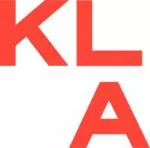RECOMMENDATIONS GUIDANCE WAS LAUNCHED TO SUPPORT COMPANIES IN RESUMPTION OF FACE-TO-FACE ACTIVITIES
On June 4th, the Guidance for Companies: Facing the Pandemic with Social Responsibility, which was jointly developed by the Ethos Institute, IBGC, International Transparency and Global Pact Network Brazil, was launched.
The Guidance seeks to provide orientation for companies to respond more assertively to the challenges posed by the global pandemic and to make them aware of how the business resumption should be done in a responsible and sustainable manner.
The Guidance addresses 14 themes, ranging from the application of corporate governance principles to the Human Rights and corporate social responsibility. In addition, according to the Guidance, the Compliance area should be responsible for disseminating the guidelines in an uniform manner for a conscious resumption of business activities.
In line with the Guidance's content, it must be emphasized that the relaxing of laws, rules and controls is needed and it is already a reality in companies from diverse segments, however it is very important that such flexibilizations is not seen as an opportunity for practicing abuses or irregular acts.
Finally, it is crucial that companies are aware of their role in society and, with their cooperation, we can overcome this critical situation with reduced human losses.
UNITED STATES OF AMERICA PROMOTE INTERNATIONAL EFFORTS IN COMBATING CORRUPTION THROUGH COUNTERING RUSSIAN AND OTHER OVERSEAS KLEPTOCRACY BILL ("CROOK ACT")
The CROOK Act, introduced by senator William R. Keating, aims to promote international efforts on combating corruption, kleptocracy and illicit financial of foreign officials and other foreign persons, strengthening anti-corruption efforts overseas, especially in countries whose authoritarian leaders uses their political power to exploit assets from the state for their own benefit. The CROOK Act still awaits approval from the Committee on Foreign Affairs.
To promote such efforts, the CROOK Act establish the Anti-Corruption Action Fund, which should take five percent of the value of each fine imposed for violations of the Foreign Corrupt Practices Act ("FCPA"). The money will be allocated to fund overseas anti-corruption initiatives, promoted by governmental and nongovernmental parties, especially in countries that are undergoing for democratic transition, combating corruption, and the establishment of the rule of law
The U.S Secretary of State aims to demonstrate that by enforcing FCPA's regulations, it is possible to contribute even more with the international fight against corruption and reduce the pressure that United State businesses face to pay bribes overseas, through the CROOCK Act.
The appropriate allocation of these resources will have direct effect on the international fight against corruption, thus enabling interested organizations to have financial autonomy to reinforce existing anti-corruption initiatives and to promote new projects which aims to transform the corporate environment into a more ethical and straightforward universe.
DEPARTMENT OF JUSTICE (DOJ) AND U.S SECURITIES AND EXCHANGE COMMISSION (SEC) PUBLISHED THE SECOND EDITION OF A RESOURCE GUIDE TO THE U.S FOREIGN CORRUPT PRACTICES ACT
Published for the first time in November 2012, the Resource Guide to the U.S Foreign Corrupt Practices Act ("Guide"), developed by the Department of Justice (DOJ) and the Securities and Exchange Commission (SEC), was updated on July 3, 2020. The Guide presents criteria that is non-binding and it does not intend to substitute for the advice of legal counsel on specific issues related to the Foreign Corrupt Practices Act ("FCPA").
In line with the lessons learned since the date of the first publication, the Guide, whose purpose is to provide detailed information for interested companies and individuals in FCPA, addresses legal provisions of the FCPA and how they are enforced in cases of violations, as well as presenting hypothetical examples of enforcement actions.
In its updated version, the Guide addressed themes not covered in the first version, such as: (i) Confidential Reporting and Internal Investigation; (ii) Continuous Improvement: Periodic Testing and Review, Investigation, Analysis; (iii) Investigation, Analysis and Remediation of Misconduct; and (iv) Evaluation of Corporate Compliance Programs.
Through Guides such as this one, the authorities fulfill their educational functions objectively and, consequently, clarify subjects that are not very well known by the public, thus enlarging the knowledge about bad practices and how to deal with critical situations. The updated version of the Guide is available on the DOJ's website and can be accessed through this link.
The content of this article is intended to provide a general guide to the subject matter. Specialist advice should be sought about your specific circumstances.

